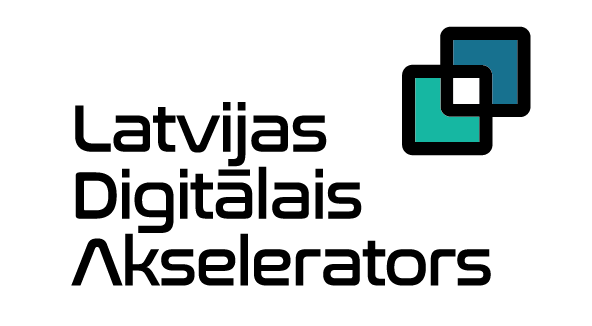News
Recent News
From now on, wooden buildings can be built taller and larger.
Published Tuesday, 09 December 2025The Saeima establishes a single application for construction and property registration.
Published Friday, 14 November 2025The apartment owners’ association will be able to receive loans for the renovation of residential buildings.
Published Thursday, 13 November 2025Due to technical issues at LVRTC, the operation of the BIS has been affected
Published Thursday, 13 November 2025It offers construction companies to adapt to digital changes.
 Published
Tuesday, 27 February 2024
Published
Tuesday, 27 February 2024
The Latvian Digital Accelerator (European Digital Innovation Center), in collaboration with partners, can assist construction companies in adapting more successfully to digital changes and achieving goals in this rapidly evolving sector. A carefully considered approach, taking into account not only the technologies themselves but also the people who will use them, is necessary for digital transformation in construction. We offer various training programs for improving digital skills, conduct digital maturity tests, develop roadmaps for companies, provide technological consultations, and offer opportunities to explore which specific technologies would be needed if you choose to introduce new innovations in your company.
Additional thematic information: The construction industry is rapidly changing, and digital transformation is essential to maintain competitiveness in this evolving environment. However, the implementation of new technologies pertains not only to the technologies themselves but also to the people who will use them. To successfully implement digital transformation, three main factors must be considered: infrastructure, digital skills, and technical integration.
To optimize time and resources, invest in the future, and ensure safety on construction sites, it is important to have the right tools and technologies available. Employees need to be familiar with modern digital concepts and embrace a culture of collaboration that leverages digitalization as a facilitator of partnerships and stakeholder management. Managers need to monitor and report on results in the next cycle of change, ensuring that digital transformation is in the interests of all stakeholders and is implemented in accordance with the digital transformation strategy.
Standardizing technology throughout the supply chain, improving skill sets, engaging older generations in driving innovation, and enhancing collaboration in the supply chain are key initiatives that drive progress and change. To effectively develop a digital culture, it is crucial to promote team thinking and collaboration, where everyone understands the significance of change both in the organizational context and in their personal growth. Additionally, it is important for everyone to be ready to adapt as needed.
Digital infrastructure is a crucial element in the planning and implementation of construction projects, and there are currently several relevant digitalization trends:
- BIM as the leading technology in modern construction: Building Information Modeling (BIM) is the use of software to create a digital twin of a real building, allowing for virtual modeling and visualization of the entire lifecycle of construction projects—from planning and construction to maintenance and repair. This helps reduce errors, optimize material usage, and save time through digital visualization.
- Internet of Things (IoT) as an autonomous basic component of construction: IoT technology allows devices and construction vehicles to be connected, creating an autonomous construction environment. Furthermore, technology advancements in the construction industry can provide intelligent management of building heating, ventilation, and air conditioning systems.
- Artificial Intelligence (AI), machine learning, and big data: AI is used to identify process patterns and optimize workflows in construction. Big data analysis enables effective problem-solving based on data analysis and forecasting. These tools are essential for modernizing business processes and innovations in construction.
- Robotics: Autonomous machines are more efficient and provide faster processes because they operate more accurately. Robotics and automation reduce the risk of work-related injuries and decrease labor costs. In the long term, robots help address the shortage of permanent skilled workers.
- 3D printing: 3D printing technology allows components to be manufactured faster using less material. This makes development processes more flexible and allows components to be customized to specific needs.
- Drones: UAVs (Unmanned Aerial Vehicles) are used to inspect, visualize, monitor, and measure the progress of construction projects. Drones provide effective and precise data acquisition, facilitating project monitoring and management.